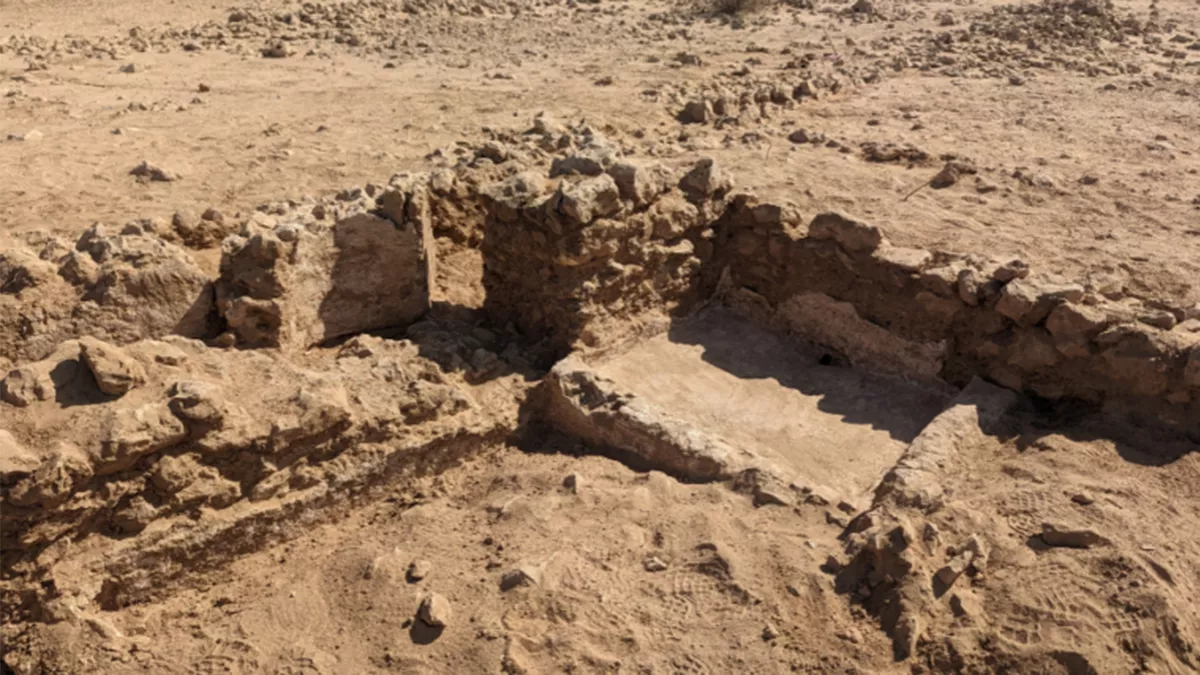
Qatar has an extensive archaeological heritage. The country is uniquely rich in sites of the Early Islamic period – more than 20 such sites exist, mostly in northern and central Qatar. The Early Islamic Period refers to the time after the population’s introduction to Islam in 628 CE and covers both the Umayyad period and the early Abbasid period. Surface finds, such as pieces of pottery, show that these sites date to the 8th and 9th centuries CE, but excavation is needed to confirm their exact dating within that range. Some sites consist of long lines of separated buildings stretching for hundreds of meters, even kilometers, over the desert landscape. One of these has been investigated by archaeologists (Murwab, 9th century), while a small group of buildings was also investigated at Yughbi (8th century). Others have large, dense clusters of buildings resembling either villages with connected houses or large complexes, depending on your point of view. At the moment only theories are there about how the people at the time in Qatar made their living, what they believed in, and how they interacted with each other and people outside Qatar.
A joint team from Qatar Museums and the University of Wales Trinity Saint David is investigating two of of the clusters, both close to QATAR’s UNESCO World Heritage Site, Al Zubarah. Work has begun and remarkable finds have been made during the first two weeks. Ain Muhammad excavations are starting to reveal a well-constructed building with several rooms, an open courtyard containing a platform, and fine plastered archways which is now fallen. There is a square plastered basin with a drainage hole just inside the doorway: here the inhabitants and visitors could wash their feet on entering. At the other site, Mesaika, a similar and perhaps larger building is being excavated.
So far, the finds show that the people on these sites were well-connected to the outside world. A small fragment of blue glass with a white ring decoration from Mesaika is a good example of this – it would have come from a fine-colored bowl and was probably made in Iraq. The technique used to make the pattern on the Mesaika example seems unusual and deserves special study.
Another very corroded fragment, from Ain Muhammad, shows swirls and panels of green, red, and yellow glass (now visible on the surfaces only as shades of grey, white and black). Similar bowls are known from art museum collections and are usually dated to the Abbasid period. The pottery is also useful in examining regional connections, as well as chronology. Wares with turquoise glaze are probably Iraqi in origin and help us pinpoint the date to the 8th or 9th century, while the unglazed pottery probably comes from a variety of places, including the Oman Peninsula, coastal Iran, and Iraq. Indian pottery may also be present. Other finds include animal bone remains and numerous pearl oyster shells; these might have been gathered for food as well as for their pearls. Gulf pearls were especially prized at the time, and sources in both Arabic and Syriac points that there was a significant population of pearl fishers in the region.
Archaeological team welcomes visitors on these days:
The floors of the buildings have not yet been uncovered, and there is little doubt that as we approach them, more objects of all kinds can be found. For those curious to discover the sites for themselves and learn about the new finds, the archaeological team welcomes visitors on 26 November, 3 December, and 10 December from 8 am to 12 pm. For more information and to book a visit, please email infoheritage@qm.org.qa
The project is led by Dr. Robert Cater (QM), Professor Andrew Petersen (UWTSD), and Mr. Faisal Abdullah Al-Naimi (QM), and is truly international, containing members from Qatar, the UK, Egypt, Italy, Germany, Syria, Tanzania, and Turkey.
